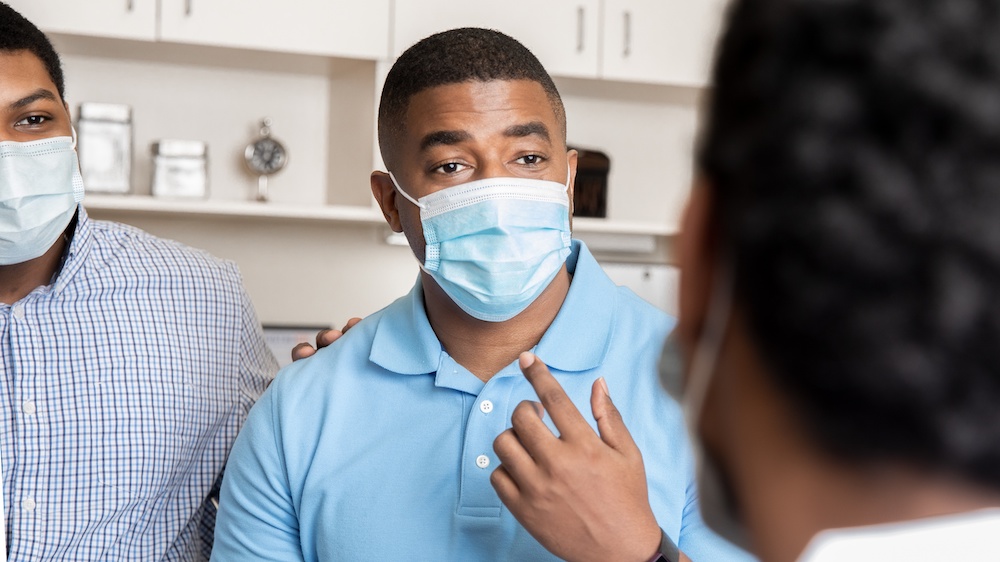If you’re interested in sharing your opinion on any cultural, political or personal topic, create an account here and check out our how-to post to learn more.
Opinions are the writer’s own and not those of Blavity's.
____
In 2020, American life expectancy dropped by a full year — the greatest decrease our nation has seen since World War II due to COVID-19. For Black Americans, life expectancy has dropped by three years, an even more startling statistic amidst the ongoing coronavirus pandemic.
COVID-19 and chronic diseases like cardiovascular disease, stroke and diabetes are already known to disproportionately impact communities of color. Today, Black Americans are two times as likely to die from heart disease than their white counterparts. Despite these risks, the pandemic has unveiled ongoing fear among this community.
At the beginning of the COVID-19 pandemic, many elective procedures and surgeries were canceled or postponed. Unnecessary travel came to a halt, and Americans were urged to stay home unless faced with a medical emergency. Today, the country has adapted, and as many communities return to a new normal, now is the time to take back control of overall health. Yet, new survey data released by the Society for Cardiovascular Angiography & Interventions (SCAI) as part of their Seconds Still Count campaign underscores that fear still exists, with more than 45% of Black American adults reporting they are uncomfortable going to the doctor's office while COVID-19 is a risk, compared to only 25% of the general population.
Physicians across the country saw this COVID-19 fear play out firsthand as routine care visits and screenings decreased. In fact, 30% of Americans have not received a check-up since the pandemic began. Many patients are also delaying treatment for medical emergencies, like a heart attack or stroke. A recent study by JAMA found a 60% increase in cardiac arrest cases outside of the hospital setting in the spring of 2020, compared to spring of 2019.
In 2021, as vaccinations roll out, local governments loosen restrictions and many Americans look to regain a sense of normalcy, now is the time to take back control of their health.
Fear of the virus caused many to fall out of routine care and treatments. As cardiologists, we urge all Americans to stay in communication with their physicians as they continue to navigate the ongoing pandemic.
Here are a few simple steps we can all take to maintain our health:
- Stay in regular communication with your physician about managing chronic conditions or potential risk factors. Ask your doctor about telemedicine options if you are uncomfortable going in person.
- Don’t postpone recommended medical procedures or screenings. If you are eligible for the vaccine, talk to your doctor about how to schedule an appointment.
- Learn the signs and symptoms of a heart attack or stroke and seek immediate medical attention in the event of an emergency.
Heart disease and other chronic conditions are not waiting in quarantine. Delaying care can be a bigger threat to your health than the virus itself. Now more than ever, we must all take back control to protect our health, the health of loved ones and the health of our communities.
